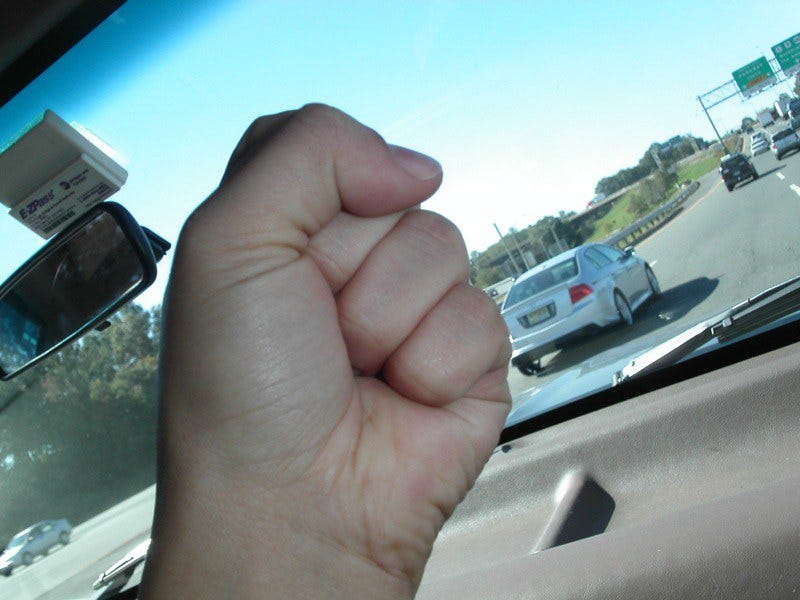As the mother of two young boys, there are certain phrases that have become so commonplace in my home, that I am physically triggered every time I hear them. I won’t run through all of them for fear of inducing a rage state in other similarly situated parents, but the one that reeeeeally riles me up is the classic, “I’m bored.”

Where to even begin with this one?
I preface this with the obligatory reassurance that I think my kids are, of course, the best. They’re adorable and funny and smart and everything of the sort. However…
They have an insatiable need to be entertained. Nothing is ever enough and there’s always room for more, especially if the “more” has a charging cable attached.
Of course, I carry some of the blame for their penchant for Playstations, but there are also cultural forces that even the most fierce Tiger Mom will struggle to fight against. Todays kids have grown up surrounded by easy access to seemingly never-ending means of entertainment. They were raised on YouTube, Netflix, and video games that go on and on. Of course they think of boredom as a mortal enemy.
The truth is, though, it’s not just kids that are giving boredom a bombastic side eye. As adults, we’ve replace the “I’m bored” whining with endless scrolling, notifications, and “let me just check my email one more time in case something REALLY important happened in the 5 minutes since I last checked.” Most of us can’t even make it through a short checkout line at the grocery store without pulling out our phones. Like our kids, we are willing to do almost anything to avoid having to just be.

While the idea of infinite sources of enjoyment sounds appealing in theory, in practice, our inability to be bored carries serious costs that most of us are too distracted to even notice as being a problem.
The Feel-Good Fallacy
Our constant need for entertainment and stimulation is causing most of us to experience dopamine addiction. Dopamine is that “feel good” chemical that we all know and love. It’s part of what makes experiences pleasurable. But dopamine isn’t just there for a good time. It’s also involved in regulating things like our motivation, focus, attention, and learning.
Every time you unlock your phone and start scrolling away on social media, you experience an intense dopamine spike. It feels great! What sweet, sweet relief to open up your Instagram and have fresh new content to peruse. Gosh, isn’t this relaxing?
The problem is that your brain wasn’t made to function on high-octane dopamine for long periods of time. And in an effort to bring itself back to regularly scheduled programming, your brain initiates a comedown process that makes most people feel pretty uncomfortable and uneasy.
When this process repeats itself enough times, you become addicted to these dopamine highs. But, now you need more frequent and more intense dopamine bursts to satisfy your enjoyment needs. This cycle can - and frequently does - result in withdrawal symptoms like stress, fatigue, anxiety, and feeling like the simple things that used to bring you joy no longer do it for you.
I’m sure none of this sounds familiar. Definitely doesn’t for me. Nope.
If that wasn’t enough, chronic overstimulation can also lead to more intense and less controlled emotional responses, making you feel more irritable, frustrated, and short-tempered, even for minor inconveniences.
This experience also feels very foreign to me. Especially when a driver switches into my lane while driving on I-95 on my way back from work. Nope, doesn’t ring a bell.
I can go on and on about the dangers of never being bored, but in the interest of efficiency, I’ll just go with a handy dandy bulleted list:
Fragmented attention and reduced focus
Difficulty retaining and recalling information
Poorer judgment and less effective decision-making
Increased anxiety and feelings of overwhelm
Agitation
Mental fatigue
Sleep issues
Do I need to go further? I can, but I won’t.
Suffice to say, our aversion to boredom has caused us to trade in valuable elements of our long-lasting wellbeing for the pleasure of temporary highs. Talk about a trade deficit.
The Benefits of Boredom
Boredom gets a bad rap, but contrary to popular belief, there are some incredible benefits to boredom. What are they? Let me count the ways.
Have you ever been engaged in a very routine task, like washing dishes or folding laundry, and you suddenly have a lightbulb moment where you come up with a crazy good idea?

Studies are increasingly linking boredom to enhanced creativity. When your brain isn't being pushed hard or overloaded, it can finally take a breather, and that's when your mind starts to wander. In this more relaxed state, you begin to connect seemingly unrelated ideas and experiences and come up with novel insights and creative breakthroughs. With more mental space, you become a better problem-solver, more resourceful, and more flexible in your thinking.
Being bored can also lead us to introspection and self-reflection.

This one might seem scary to some people because who knows what you’ll find in there? But exploring your thoughts and feelings leads to greater self-awareness and a deeper understanding of your life, your values, and your goals. It helps gives you a greater sense of purpose, direction, and genuine fulfillment.
And, taking breaks from constant stimulation and stress also allows our brains to get the rest and recharge it desperately needs to function at its best. Studies consistently show that periods of inactivity and boredom reduce anxiety and improve mental well-being.
Designing Downtime
I’m sure that if our evolutionary ancestors heard that we had to consciously cultivate boredom, they’d be very confused. But this is the hand we’ve been dealt. In our current world, we have to be intentional in creating space to be bored.
Here are some ways you can do it.
Unplug Regularly
Make it a point to disconnect from digital devices and social media. Set specific times to unplug without attempting to fill the time with anything specific. I find that setting an alarm that says “GET OFF YOUR PHONE” can be a pretty helpful reminder that a digital detox is in order. Allow yourself to experience moments of boredom naturally to reduce the constant influx of information and stimulate your mind in different ways.
Engage in Mindless Activities

Choose activities that require minimal mental effort, such as doodling, walking (without your phone), or doing household chores. These tasks allow your mind to drift, creating space for creative and introspective thoughts to emerge.
I am a particular fan of doodling in my notepad when I take breaks between meetings. It not only helps my mind rest, but also helps me more fully absorb the information I just learned and come up with more creative and effective applications for how to use it.
Set Aside "Boredom Time”

Allocate specific periods in your day or week to do nothing. For example, declare Sunday mornings as your “Sunday Slowdown” or every few hours at work, set aside 5-10 minutes to just stare at your nearest wall. This designated "boredom time" where you are not engaging in any particular task can lead to new ideas and insights. Treat it as a valuable time for mental wandering and exploration - because it is!
Practice Mindfulness

Of course you knew I would have to bring up mindfulness at some point. Incorporating mindfulness practices into your routine can help you not just tolerate boredom, but embrace it. Meditation or deep breathing can train you to be present with your thoughts and feelings, reducing the urge to constantly seek external distractions.
In conclusion…
I know that my kids positively despise me when I suggest that only boring people get bored and refuse to throw an iPad at the problem. But I have to constantly remind myself that I’m helping them develop important skills that will serve them well.
Writing this piece is also a reminder to myself of how important it is to carve out time for silence.
Most of all, though, I hope it helps you remember that there is incredible power in boredom and that if you stop resisting it, it can enhance your life in magnificent ways.
So, the next time you find yourself with nothing to do, don’t look to fill the time. It may just be the key to unlocking your full potential.
What’s your experience with boredom (or lack thereof)? Share with the class in the comments.
Until next week, stay well, friends.








